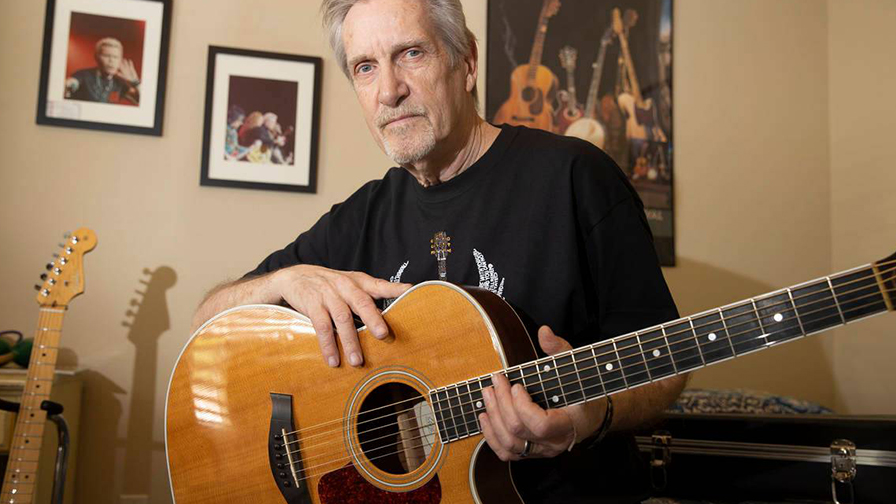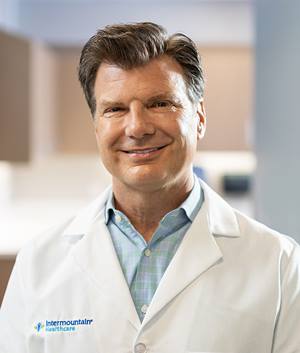

Warren Volker, MD
Until now, no liver transplant program was available in southern Nevada. In fact, the only organ transplant program available in the area was kidney. But not anymore.
Historically, patients in the Las Vegas area in liver failure and in need of a liver transplant had to travel to California or Arizona for care. That means patients had to make multiple pre-op and post-op visits to a transplant center in a neighboring state. But now Intermountain is ensuring patients can get all their liver transplant care in their own community, aside from the actual transplant surgery at Intermountain Medical Center. And Nevada patients are typically getting their transplants sooner because wait times are often shorter in Utah.
Here’s how the liver program works. Richard Gilroy, MD, Intermountain’s liver transplant medical director, travels to Las Vegas with his staff once per month to see liver patients in a local Intermountain clinic. Additional consultation and support are provided to Nevada patients throughout the month via telehealth and virtual visits. Dr. Gilroy says improved treatment of liver disease can often keep patients from needing a transplant. But if a transplant is needed, patients have access greater access to local services. While patients will go to Intermountain Medical Center for the surgery, all the prep work is done in Nevada and patients will return to Nevada for follow-up care.
Mark Anderson received his liver transplant at Intermountain Medical Center in 2019 and has been able to do follow up appointments near his home in Las Vegas. He says he’s needed lots of follow-up care and therapy in the last two years, including therapy to help him learn to walk again, and therapy to emerge from the mental fog brought on by illness. He says his liver transplant has given him a “new appreciation for my second chance at life.”
Mark was once was the lead singer and guitar player for a classic rock band that played in bars, but he hasn’t been able to play for years because of his liver disease.
“So now, I got back into it,” he told the Las Vegas Review Journal. “I bought some guitars and some recording equipment, and I have my little hobby. I play every day. I’m working on some songs. I play and record. I’m having a great time.”
Intermountain has performed more than 1,500 liver transplants, including 79 last year, Dr. Gilroy says.
Intermountain’s liver transplant program began in Nevada in January, and a similar outreach program for bone marrow transplant began in March. Warren Volker, MD, chief clinical officer for Intermountain in Nevada, says plans are being made to add a heart transplant program soon. And he says a few heart transplants have already been performed for patient from the Intermountain Nevada heart failure clinic.
Dr. Volker says new transplant services are just one example of the many benefits Intermountain is bringing to Nevada. “As an integrated regional healthcare system, patients now have greater access to local services—and this integrated approach differentiates us,” he says. “That’s really new to Nevada and has been such a great addition to our state. Bringing together all these resources and experience for our patients is just amazing.”
The benefit of this approach during the COVID-19 pandemic also allowed new access and efficiencies by combining resources and knowledge that resulted in faster lab turn-around, infectious disease expertise, and shared treatment therapies.
Karim Kasissi, medical group president in Nevada, adds, “This new access to transplant services is a great an example of the growing synergies between the medical group and the Intermountain enterprise. It highlights the exciting potential we have here in Nevada to make a difference in the lives of patients and their families.”

